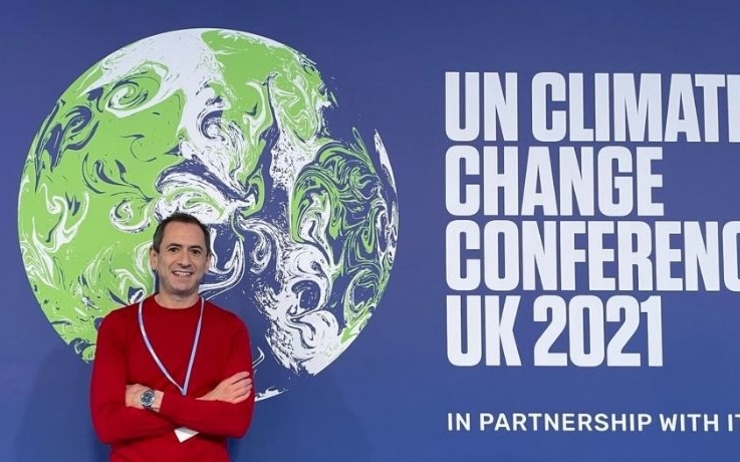
David Benattar “NZ wants to cut greenhouse gas emissions by 50%”
David Benattar has spent 20 years in New York, first with cosmetics brand Aveda (Estée Lauder), then in sustainable development consulting and finally in digital transformation. Through this course, he was able to understand all the challenges of sustainable development. This Frenchman arrived in New Zealand in 2016 within the Warehouse Group, and served as Head of Sustainability for three years.
Hi David, can you explain the role of the Head of Sustainability within the Warehouse Group? Why is it so important today?
Today, no single company and sector of activity is unaffected by the disruptions of climate change and the challenges of sustainable development, whether these are social or environmental challenges. As New Zealand’s largest retail group, we connect our suppliers with consumers. We have a perspective and an impact on the entire value chain. This impact is the result of our purchasing policies, our transportation and delivery methods, our societal commitments, the training of our employees, and of course our attitudes, and communication on these promising topics. My role is to translate this portfolio and this footprint into risks and opportunities for the company. It is a role for education, but also a role for coordinating with various stakeholders, and a role for strategy and advice.
It may seem inconsistent to talk about sustainable development within a group of the retail sector. How do you respond to potential critics?
Indeed, some have this impression, because we are a major player in mass consumption. It is precisely because of this role and our impact in the country that it is imperative that social and environmental considerations be at the heart of corporate strategy and decision-making mechanisms. This requires tools, knowledge, investments and teams in service of this mission.
Nowadays, thanks to the evolving mindsets, the action of the media, activists and of course the new expectations of consumers, it should help it redraw its economic model and make it at the heart of the company. Sustainable development is a tool for transformation and performance, and a lever for competitiveness. Sustainable development now plays a major role in retail, finance, energy, transportation and construction, among others.
This role will not be necessary when sustainable development becomes second nature. Called enlightened capitalism, we are today between a traditional system and a conscious system.
I recently participated in COP26, why?
I went to COP26 to represent the hand Warehouse groupbut also Climate Leaders Alliancethis commercial mix that accounts for 60% of greenhouse gas emissions in New Zealand. This alliance of signatory members commits to a certain number of actions to reduce their emissions and decarbonize their value chains.
My job was to learn and report on the best in the work on climate change, meet potential partners, and understand new technologies and new financial and economic models.
Action against climate change is an action that requires partnerships. This is also why it is important to be represented there. Indeed, the corporate world had a strong presence.
What is the impact of COP26 on business in New Zealand?
The New Zealand It has increased its budgets and commitment to reduce greenhouse gas emissions by 50% by 2030. The country has signed an agreement to reduce methane emissions by 30%, and this comes mainly from the agricultural sector. The New Zealand It is also the first country in the world to require banks, financial institutions and public companies to measure and report the risks associated with climate change. The New Zealand It is also the first country in the world to require banks, financial institutions and public companies to measure and report the risks associated with climate change.
Why is it necessary, in your opinion today, for companies to take action to combat climate change?
First, our planet is in danger. Furthermore, with greater awareness of this risk, consumers will reward companies that participate and investors will reward projects that have a positive impact. If the company does not realize this change in the expectations of economic actors, it risks becoming insignificant. So it becomes a commercial risk.

“Organizer. Social media geek. General communicator. Bacon scholar. Proud pop culture trailblazer.”




